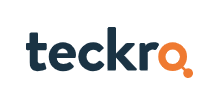
There are several factors at play that explain this reticence to accept change in the pharma industry. For one, regulatory overhead is high and some organisations are reluctant to take on risk. Changing processes means re-evaluating challenges, and there are inevitable concerns when it comes to digitalisation, such as data security, technology literacy among staff and inertia in moving away from traditional methods.
For Brendan Buckley, chief medical officer at clinical trial software and platform provider Teckro, part of the problem is a disconnect between teams and the chain-of-command: “Clinical trials are highly regulated and there is a mythology that the regulator doesn’t want something done in a particular way, but this is often a false assumption.”
These assumptions lead to a refusal to move away from pen-and-paper processes towards a digital approach in an effort to keep regulators happy. But if the sectors that are thriving in industry 4.0 prove anything, it’s that digitalisation is paramount to improving efficiency, safety and traceability, and regulators recognise this.
Ending reliance on paper
“We have successfully concluded over 100 trials and there’s been no problem with inspections. We’ve never had criticism from the regulator,” Buckley explains. “When I was on the European Medicines Agency’s various task forces and committees for regulators, what they wanted was simple; they want to know that you can do something properly and that you can prove it.
“Companies are focused on keeping people safe, and they may be nervous about fraud, so traceability and accountability are important. From a regulatory point of view, adopting technology is actually much safer, because it’s really easy to track electronic audit trails.”
By creating a comprehensive electronic audit trail, clinical trial projects can provide a chronology of what has happened at every stage, effectively preventing fraud, offering accountability for error, and streamlining communication between teams to repair the disconnect in the chain-of-command.
“When we have talked to biotech companies it’s a lot easier as their chain-of-command and chain-of-decisions is shorter,” Buckley explains. “You can talk to people who are intrinsically innovative and entrepreneurial. Companies that are more recently set up are also much more worried about efficiency and their money, they’re more likely to embrace technology.”
Going paperless with COVID
COVID-19 has been a catalyst for change in the pharmaceutical industry. Clinical trial patients can be some of the most vulnerable people to infection and digital solutions, such as remote monitoring, have become paramount to keeping both patients and healthcare workers safe. The pandemic has also required more research staff to work remotely, meaning that digital platforms are essential for communication and access to data.
Adopting paperless digital platforms for clinical trial project management does more than reduce the risk of human error, it is also good for the environment. Paper use for clinical trials can be huge, especially as methods of data collection become more advanced, allowing for bigger trials. With a smart digital platform, study administrators can be assured that data and updates aren’t lost in a sea of paper.
Teckro’s digital platform enables targeted messages to ensure that important updates are read by busy research staff and CRAs. All messages are recorded in a dashboard and open rates are tracked for full traceability. Teckro also operates a search engine that provides access to protocol and trial documentation, allowing staff to see in real-time which sites are engaged with their trials. The company’s suite of clinical trial software optimises site performance and increases oversight and transparency within the pharma industry.


